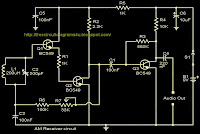Free Electronic Circuits,Schematic Diagram,Circuit Diagrams
 free, electronic circuit, circuit diagram, circuit schematic, schematic diagram, electronic diagram, audio, amplifier, power supply, guitar effect, current loop, current limiter, video, receiver, transmitter, transceiver, transistor, radio frequency, rf, active filters, digital, analog circuit, pwm, micro controller Free download
free, electronic circuit, circuit diagram, circuit schematic, schematic diagram, electronic diagram, audio, amplifier, power supply, guitar effect, current loop, current limiter, video, receiver, transmitter, transceiver, transistor, radio frequency, rf, active filters, digital, analog circuit, pwm, micro controller Free download
Free Electronic Circuits,Schematic Diagram,Circuit Diagrams
 electronics circuit,circuits,schematic diagram,circuit design,circuit diagram, circuit
electronics circuit,circuits,schematic diagram,circuit design,circuit diagram, circuit
Electronic Circuit,Schematic Diagram,Circuit Diagrams
 electronic circuit, circuit diagram, circuit schematic, schematic diagram, electronic diagram, audio, amplifier, power supply, guitar effect, current loop, current limiter, video, receiver, transmitter, transceiver, transistor, radio frequency, rf, active filters, digital, analog circuit, pwm, micro controller Free download
electronic circuit, circuit diagram, circuit schematic, schematic diagram, electronic diagram, audio, amplifier, power supply, guitar effect, current loop, current limiter, video, receiver, transmitter, transceiver, transistor, radio frequency, rf, active filters, digital, analog circuit, pwm, micro controller Free download
Best Song Lyrics Collection
 Find The Music Lyrics To Any Song! It's Free DAILY UPDATED! One of the largest,most accurate, browsable and searchable song lyrics source on the net. lyric, lyrics, song, music, song lyrics, music lyrics
Find The Music Lyrics To Any Song! It's Free DAILY UPDATED! One of the largest,most accurate, browsable and searchable song lyrics source on the net. lyric, lyrics, song, music, song lyrics, music lyrics













0 comments: